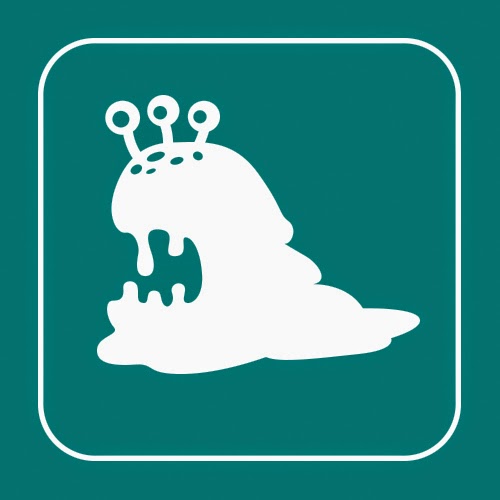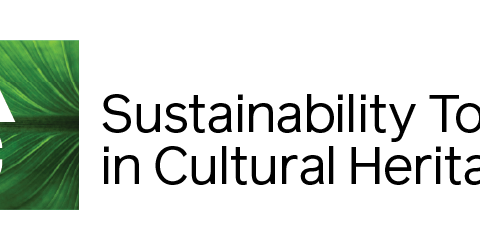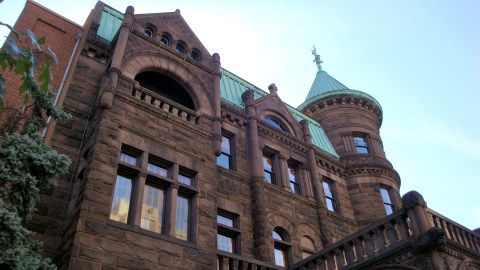A lot of great folks joined me for last Friday’s Tweet chat on open data. Here’s a compilation of the resources, recommendations and questions shared by participants, to help you
 |
Find me on Twitter
@futureofmuseums |
with your exploration of “open.”
(This chat was the first in a series exploring the themes in the CFM forecasting report TrendsWatch 2015. For an introduction to open data and why it matters to museums, download the free PDF of the report. For another opportunity to delve into the forecast, join the staff of the New England Museums Association for an online discussion on April 1.)
What’s going on in and around museums with open data
Tweeters gave a special shout-out to the National Gallery of Art’s (@NGADC) open access image platform, which contains over 45,000 open access digital images available free for download and use.
Europeana is an internet portal that serves as an interface to millions of digitized records including books, paintings, films, museum collections and archival records.
Trove is a similar portal from the National Library of Australia, with access to over 400k online resources including maps, historic newspapers, music, books etc.
Digital Public Library of America is a national digital library based in the Boston Public Library, dedicated to creating an open, distributed network of online resources from libraries, archives and museums.
Not directly related to museum, archives, etc., but a great example of the powerful tools that can be created from open government data: GovTracks provides a bunch of online tools for monitoring bills & resolutions, members of Congress and their voting records, as well as access to the underlying data and an API.
Where to go for thoughful commentary on open data
Open Data Institute Blog (@ODIHQ). The Open Data Institute (co-founded by Sir Tim Berners-Lee, inventor of the World Wide Web) is dedicated to “catalysing the evolution of open data culture to create economic, environmental, and social value.” The institute holds convenings, offers training and certificates, and conducts research.
The World Bank data blog is “a forum for discussing development data issues and open access to data. Open access to data is a key part of the World Bank’s commitment to sharing our knowledge to improve people’s lives.”
Professional development opportunity
Harvard’s MetLab holds Beautiful Data workshops exploring what can be done with the collections and visual data being made available by art museums. The next one is being offered July 6-16 this summer, at the newly reopened Harvard Art Museums, and applications are due April 1. It will focus on “difficult collections poised on the edge of the digital/material divide.” The application is competitive and participants receive a housing and travel stipend. Yow. This looks great.
References (papers, talks)
Start with this marvelous essay by my chat co-host, Ed Rodley (@erodley) of the Peabody Essex Museum in which he touts the Virtues of Promiscuity (when it comes to data). It appears in the Code|Words essay series on Medium, which you should be following in any case. Ed’s essay helped focus my attention on the promise and challenges of open museum data.
A “Pragmatic Examination of Linked Data for Libraries, Archives and Museums” by Ed Summers and Dorothea Salo, available on the Cornell University Library site, sets out “some of the reasons why Linked Data is of interest to the cultural heritage community, what some of the pain points are for deploying it, and characterize[s] some pragmatic ways for cultural heritage organizations to realize the goals of Linked Data.”
A 2013 talk by Will Noel (@WillNoel) on The Commons and Digital Humanities in Museums. [20 minute video. Very watchable] Noel is director of the Special Collections Center at the University of Pennsylvania Libraries and founding director of the Schoenberg Institute for Manuscript Studies.
This article by Mia Ridge on poking around in the Cooper-Hewitt’s collections data, and the daunting practical barriers to messing around with 270,000 collections records.
If you host a discussion about TrendsWatch’s open data section, consider using these questions suggested during the chat to spur the conversation:
- How will open data decisions will be made when they involve information from other cultures with their own laws?
- How do we build a community of developers/users around newly accessible open data?
- How can museums use open data to shape policy- collections management, collecting, conservation plans?
- How can museums leverage open data to co-curate with communities and the public?
- How can museums flip to open data as the default instead of the exception?
- What data do museums generate that they don’t realize may have useful/interesting applications?
- How will open data change the way museums track the spread and success of our applications and data?
- How can museums get data out to where it will be used?
Finally, here are some recommendations shared by the group regarding who to follow on Twitter for content on open data:
@willnoel (featured in the video cited above)
@mpedson (Michael Peter Edson, director of web and new media strategy at the Smithsonian)
@tjowens (Trevor Owens, senior program manager, IMLS)
@meretesanderhoff (Merete Sanderhoff, curator of digital museum practice, National Gallery of Dembark)
@sebchan (Seb Chan, director of digital and emerging technologies at Cooper-Hewitt, Smithsonian Design Museum)
@edsu (Ed Summers, lead software developer, Maryland Institute for Technology in the Humanities
@wragge (Tim Sherratt, digital historian, web developer, cultural data hacker)
@justgrimes (Justin Grimes, Ph.D. candidate, University of Maryland)
@crowdconsortium (Crowd Consortium, a national organization that supports research and deployment of crowdsourcing for cultural heritage institutions)
My thanks to the following tweeters contributed the bulk of the content to the chat (which suggests to me they might be good people to follow, as well!)
@tjowens
@shanerichey at @crystalbridges
@designoz
@patrick_mj
@mwinikates
@bergfulton
@analucb
@nealstimler
@mia_out
@matthewdlincoln
@sherah1918
@jj_mayer
@PUBDOMAINHULK
And you can follow CFM on Twitter @futureofmuseums. I mostly tweet and retweet links to articles, blog posts and research reports both about trends in general and museums in particular. Much of this content does not end up in CFM’s weekly Dispatches from the Future of Museums e-newsletter.
Elizabeth Merritt











